Dr Jonathan Cane’s recent research trip to Brazil
In May 2023 LCAB Fellow Dr Jonathan Cane and his research collaborator Dr Andre Prado Fernandes visited Manaus and the Biological Dynamics of Forest Fragments Project Area of Relevant Ecological Interest (DBFFP) in Brazil.
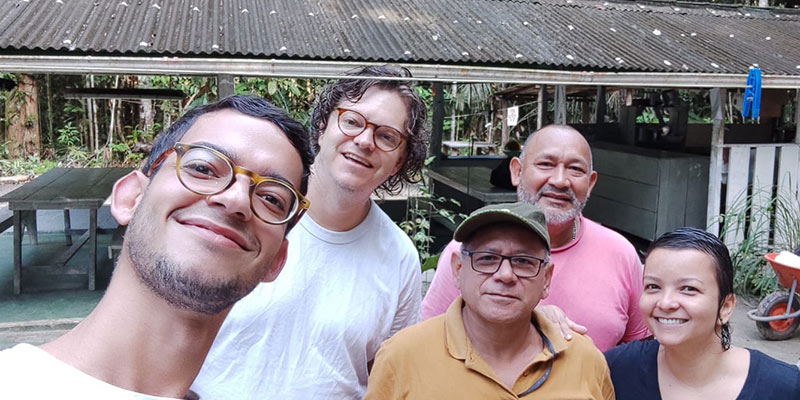
DBFFP has stood as the longest-lived forest monitoring project in the Amazon since its establishment in 1979, due to a collaboration between Brazil and the United States.
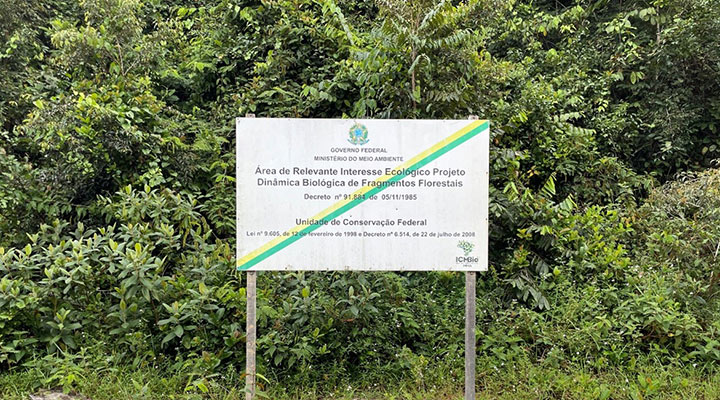
The visit began in Manaus, where the researchers met some of the DBFFP staff and presented two talks to an audience of postgraduate students and scholars. The first to speak, Dr Prado introduced some preliminary findings of his research on the potentials and traps of extending legal rights to ‘nature’.
His presentation examined competing understandings of the concepts of harm, compensation, and reparation by juxtaposing landmark rulings on environmental disasters with innovative and radical approaches.
Next, Dr Cane presented a variety of deforestation and fragmentation visualisations from the Brazilian Amazon to gesture towards certain aesthetic and poetic infrastructures that structure how we debate, organise, imagine, and plan.
Jonathan’s presentation shared some of the preliminary findings of his broader interest in describing and analysing the visual conventions governing deforestation and fragmentation in the Amazon. After each presentation there was a Q&A session with the audience.
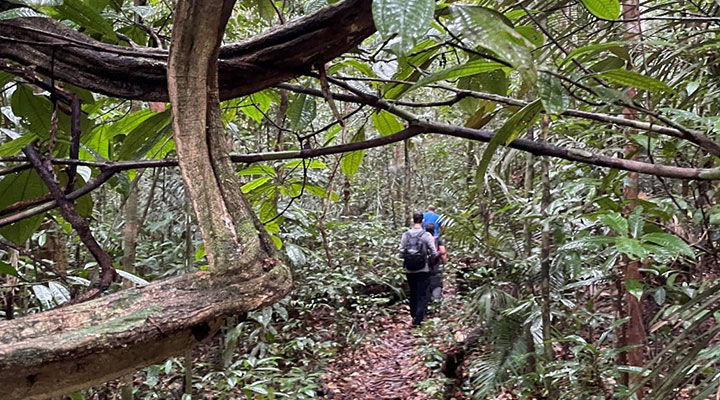
The following day, Drs Cane and Prado plus three staff members—Manoela, Bacu, and Cabocão—went to Acampamento 41, one of DBFFP’s camp sites about a hundred kilometers north of Manaus, a small clearing in a primary forest.
The site is used by researchers doing fieldwork, national and international activists and donors, and staff members who assist academic researchers but are themselves equally, if not more, knowledgeable on all things Amazon.
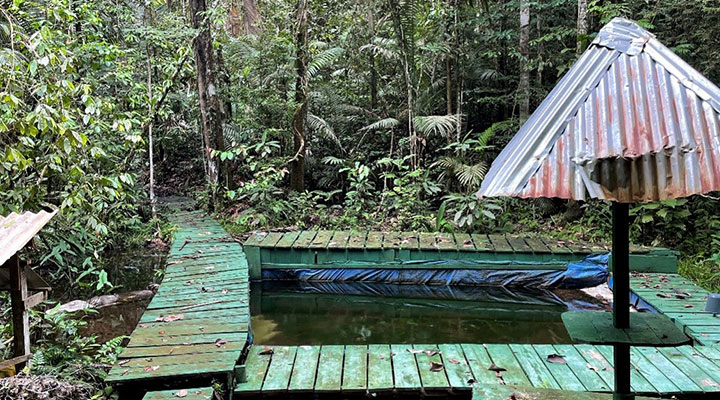
Over the weekend in the forest, the researchers visited one of BDFFP’s fragments and went on excursions with the staff members to learn and see research being conducted on the ground.
At mealtimes, while everyone was gathered around the table, the variety of subjects brought up and extensively discussed illustrated the complexity and diversity of a place like the Amazon: the simultaneous navigation of scientific and traditional knowledges, the local folklore, the political tides in Brazil under Bolsonaro and Lula, international collaborations and barriers, and the roles of the human(ities) within/against the Anthropocene.
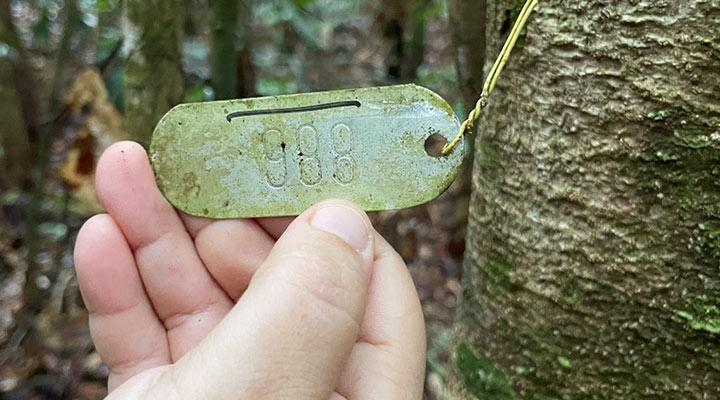
In this vein, key notions for environmental humanities research emerged during their immersion in the Amazon Forest. To be developed in eventual case studies, the concept of capoeira, for instance, inhabits at once the traditional and the scientific.
Used to refer both to ‘secondary forest’ and the Afro-Brazilian martial arts/cultural expression, the unstable and multivalent signifier of capoeira opens up investigations on decolonial ways of seeing and naming the natural world beyond/against the Western split between the external world and the internal, detached observer.
As incipient research on the field suggests,[1] terms like capoeira (from its Tupi origin akin to “forest which is no longer that which it was”) apprehend nature neither through linear stages of development (primary, secondary) nor through cutting it off from space-time.
Rather, it points towards apprehending nature in movement, where the past marks the present and invokes the future, where what is regenerating is not merely the ‘bush’ or the ’forest’ but all the phenomena and the (more-than-)human relations that support it.
Put otherwise, concepts such as capoeira might teach us how to do research in the environmental humanities without fragmenting and immobilizing the external world and without detaching or hierarchizing those who study and name it.
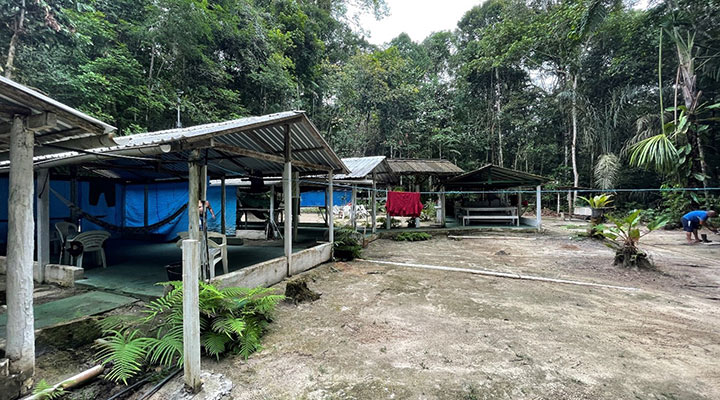 Based on the above, some ideas for an extended study following the visit to Manaus and BDFFP include the elaboration of key guidelines and methods for the environmental humanities, drawing from the theory of island biogeography and concepts such as fragmentation, sources, and mobility.
Based on the above, some ideas for an extended study following the visit to Manaus and BDFFP include the elaboration of key guidelines and methods for the environmental humanities, drawing from the theory of island biogeography and concepts such as fragmentation, sources, and mobility.
This approach would allow investigations such as, on one hand, how the translation between different sites of knowledge production might (not) occur; on the other hand, how apparently incommensurable (and hierarchical) knowledges such as traditional ‘versus’ scientific might no longer be dichotomous but mutually constitutive and coexistent.
[1] Rizzi, Carlos Alberto. 2012. Investigações sobre a construção do fitônimo Capoeira: aspectos do campo léxico-semântico e geolinguística indígenas. TradTerm 19, 214-247.